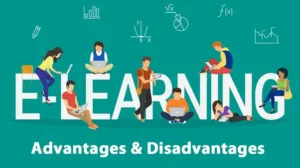Unplugging the Future: the Negative Effects of Technology on Education

The Growing Concern: Negative Effects of Technology on Education
Technology has become an integral part of our lives, permeating every aspect, including education. While technology offers numerous advantages, there is a growing concern about its negative effects of technology on education. In this article, we delve into the various ways technology may be adversely impacting the educational landscape, from decreased attention spans to limited critical thinking abilities.
Table of Contents
Distraction Epidemic: Impact of Technology on Focus
One of the most significant negative effects of technology on education is the distraction epidemic it has spawned. With the constant presence of smartphones, tablets, and computers, students are prone to diverting their attention away from the lesson at hand. The lure of social media, online games, and instant messaging poses a serious threat to their ability to concentrate on academic tasks. As a result, their learning outcomes suffer, and they struggle to retain information.
Diminishing Interpersonal Skills: Technology’s Role
Another detrimental negative effect of technology on education is the diminishing development of interpersonal skills. As students increasingly rely on digital communication platforms, they may struggle to engage in face-to-face interactions effectively. The lack of in-person communication hampers their ability to build strong relationships, develop effective collaboration skills, and express themselves confidently. These vital skills are crucial for success in both academia and the future workplace.
Impaired Critical Thinking: A Consequence of Technology
Critical thinking is a fundamental skill that enables students to analyze, evaluate, and solve problems effectively. Unfortunately, technology’s pervasive presence in education may hinder the development of this essential cognitive ability. Students often resort to quick internet searches or rely heavily on automated tools, which limits their capacity to think critically and independently. Consequently, their ability to assess information, make informed decisions, and formulate creative solutions may be compromised.
Technological Dependence: Detrimental Effects on Self-Sufficiency
As technology continues to advance, students become increasingly dependent on it for various educational tasks. Relying heavily on digital resources and tools can diminish their self-sufficiency and problem-solving skills. Instead of developing resourcefulness and resilience, students may rely on technological solutions, inhibiting their ability to navigate challenges and overcome obstacles without assistance. This over-reliance on technology hinders their personal growth and inhibits the development of valuable life skills.
Decreased Physical Activity: Sedentary Lifestyle
Technology’s negative impact on education extends beyond cognitive aspects to physical well-being. The integration of technology in classrooms often results in a sedentary lifestyle for students. They spend long hours sitting in front of screens, leading to a lack of physical activity. This sedentary behavior contributes to various health issues, including obesity, musculoskeletal problems, and decreased overall fitness. By promoting a sedentary lifestyle, technology compromises students’ overall health and the negative effects of technology on education.
Information Overload: Challenges in Processing
The digital age has ushered in an era of information overload, which can overwhelm students and impede their learning process. With a vast amount of information readily accessible, students may struggle to discern the quality, relevance, and reliability of the content they encounter. This overload often leads to information anxiety, confusion, and difficulty in processing and retaining knowledge. Consequently, students may face challenges in effectively synthesizing information and developing a deep understanding of the subjects they study.
Cyberbullying and Online Harassment: Psychological Impact
With the proliferation of technology, cyberbullying, and online harassment have become significant concerns in the educational sphere. Students can be subjected to various forms of harassment, such as bullying, threats, and public shaming, through digital platforms. These negative experiences can have severe psychological consequences, including anxiety, depression, and decreased self-esteem. Such adverse effects can significantly hinder a student’s academic performance and overall well-being.
Socioeconomic Disparity: Unequal Access to Technology
While technology has the potential to enhance education, it can also exacerbate existing socioeconomic disparities. Not all students have equal access to technology and the internet, creating a digital divide. Students from economically disadvantaged backgrounds may lack the necessary resources to fully participate in technology-driven education. This disparity puts them at a disadvantage, limiting their opportunities for academic success and future prospects.
Finding Balance: Mitigating the negative effects of Technology on education

While acknowledging the negative effects of technology on education, it is essential to find a balance that harnesses its benefits while mitigating the associated drawbacks. Educators can incorporate strategies that promote active learning, limit screen time, and encourage face-to-face interactions. By prioritizing critical thinking, problem-solving, and interpersonal skills, educators can equip students with the necessary tools to thrive in a technology-driven world.
Conclusion – negative effects of technology on education
The negative effects of technology on education are a growing concern. Distraction diminished interpersonal skills, impaired critical thinking, and decreased physical activity are among the consequences. Information overload, cyberbullying, socioeconomic disparities, and compromised self-sufficiency further compound the issue. However, by adopting a balanced approach and focusing on holistic education, we can mitigate these negative effects and empower students to navigate the digital landscape successfully. It is crucial for educators, policymakers, and parents to collaborate and establish guidelines that foster a healthy relationship between technology and education, ensuring that students are prepared for the future while safeguarding their well-being.
Learn about: Step right up and witness the mesmerizing spectacle as Circus Vargas Roseville is conquered by marvels under the big top!







